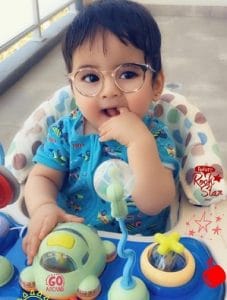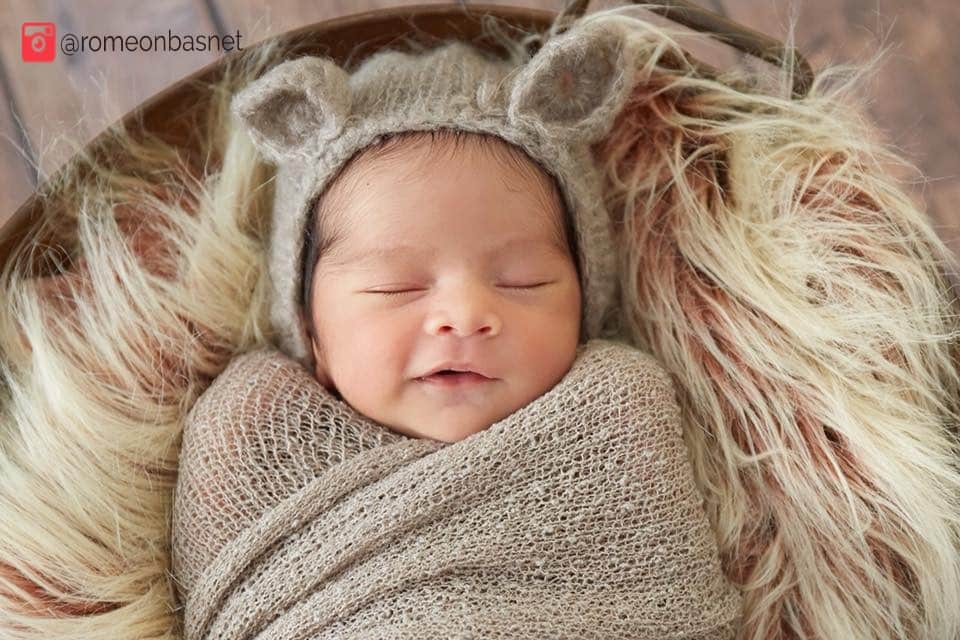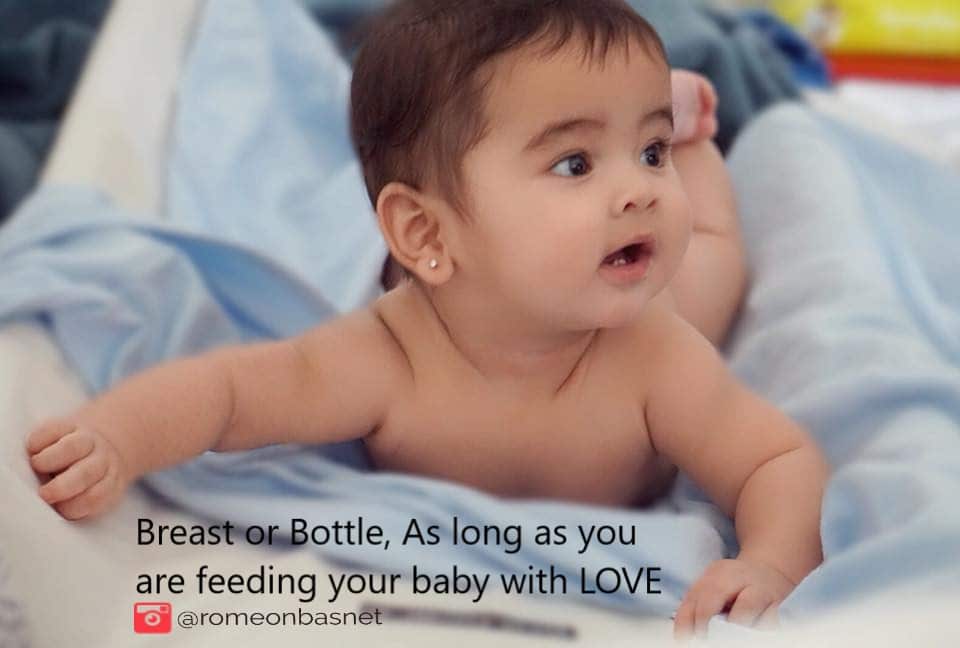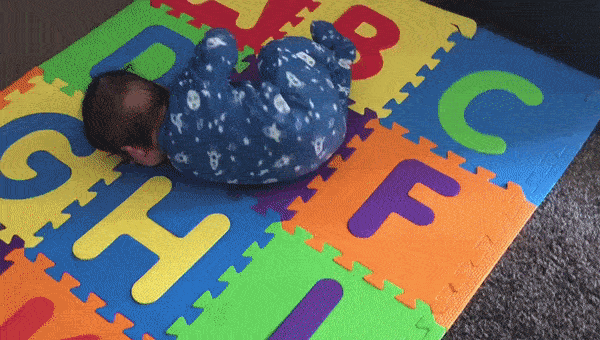How Parents Can Help A Baby Master Milestones
Every new parents, after getting used to the routine parenting cycle, start thinking about their babies’ growth and development and get anxious about them mastering milestones. It took me a while to get used to the new life with my little one. Soon after that, I started scanning charts and numbers to check if my baby was have a normal growth and development like other average babies. Like every other new parents I was trying to find answer to these questions – ‘when will my baby smile?’ when will my baby sit up on their own?’, or ‘when will my baby crawl?’
All Babies are unique and special…
During this journey as a new parent, I came to realize that all babies are unique and special. They take their own time to achieve different milestones. Having said this, I don’t want parents to understand that it’s perfectly normal if their kids don’t reach certain milestones within reasonable period of time. In such cases you should consult to your doctor. Each blue book comes with a guideline that parents can follow to track their babies’ milestones. Also, it has information about when to contact medical professional regarding specific milestones based on their ages.
Contents
How Parents Can Help Babies Achieve Milestones?
 It’s quite normal for us, parents, to worry about the development of our child. I clearly remember how worried I was when the healthcare professionals were doing different tests on my newborn baby. After every tests, I anxiously waited for them to say that he was fine. Fortunately, everything was great with him except for his gums.
It’s quite normal for us, parents, to worry about the development of our child. I clearly remember how worried I was when the healthcare professionals were doing different tests on my newborn baby. After every tests, I anxiously waited for them to say that he was fine. Fortunately, everything was great with him except for his gums.
Teething at only 3 months….
My son was born with swollen gums. We simply didn’t know what it was and had no clear answer from the hospital. The specialist said that it was normal among some babies to have swollen gums. Only thing that brought us relief was it didn’t affect his feeding. Sometime after three months, my wife told me that she might have given him slightly hot formula and burned his gums. I checked his gums and to our surprise his gums weren’t burnt but he was simply teething at only three months.
We knew it was extremely uncommon for infants to start teething at three months. Not to forget our baby was born from c-section and was born 3 weeks early. Even my parents didn’t believe that he was teething and I struggled taking a good picture of his teeth to send them as a proof. I had friends whose daughters were 8 and 13 months old and still hadn’t started teething.
Delayed progress in other milestones…
In our case, my son started teething much sooner than other babies. However, he simply didn’t start taking steps till he was 15 months old. I have many friends whose kids had started walking even before they turned one. Thinking and comparing the development of my child with others’ got stressful at times. But, I was wise enough to understand that all child develop differently.
Spend more time interacting with babies…
Since my son was taking longer to walk, instead of just worrying, I started spending more time playing with him. I had this earlier incident that made me realize how smart babies are. He often slept with us in our bed and I was worried he might wake up during the night and try to get down from the bed.
Babies are smart…
He must have been only 9 months or even less when I taught him to crawl backwards and get down from the bed. He learnt that in no time and started crawling backwards whenever he wanted to get down from the bed. Even though, he was still too small to land properly, I was simply happy that I was able to teach him a valuable skill.
Success……
I decided to try something similar to help him achieve this important baby milestone. Everyday after I got back from work, I provided him support and encouraged him to take steps. It didn’t happen overnight, but after two weeks he took his first steps on his own. Soon after that, he started walking comfortably. This was another important lesson for me. I realized that whenever a baby is struggling achieving certain growth and development, I should encourage and provide him that much needed support.
Do more than just worry…
Kids are smart and only thing they need from us is time to help them achieve these milestones. Some babies do it by themselves and some might need a bit of push as my son did with his walking. I am still following up with him regarding his milestones. I have seen many kids of his age who speak some words very clearly and even recite ‘ABCD’. With my son, I am still waiting for him to say DAD clearly. However, this time, instead of worrying, I am spending more time with him, teaching and encouraging him to speak. Hopefully I can soon hear the magic word – ‘DAD’.
Don’t compare a baby’s development with other babies…
It’s never right to compare the growth and development of your baby with others. You should still follow the general guidelines for baby milestones and consult to your doctor if your have any worries regarding your baby not being able to achieve any milestone. The best you can do for your little one is spend more quality time with them and encourage them to achieve all the milestones specific to their age.
Baby Milestones 0-3 months

- Begins to smile at people
- Tries to look at parents.
- Turn head towards sounds
- Pays attention to faces
- Begins to follow things with eyes and recognise people at a distance
- Can hold help up and begins to push up when lying on tummy
- Make smoother movements with arms and legs
You should act early by contacting your child’s doctor or child and family heath nurse if your child
- doesn't respond to loud sounds
- doesn't watch things as they move
- doesn't smile at people
- doesn't bring hands to mouth
- can't hold help up when pushing up when on tummy
Baby Milestones 3-6 months

- Knows familiar faces and begins to know if someone is a stranger
- Likes to play with others, especially parents.
- Responds to other people's emotions and often seems happy.
- Likes to look at self in a mirror.
- Responds to own name.
- Makes sound to show joy and displeasure
- Begins to say consonant sounds (jabbering with 'm', 'b')
- Looks around at things nearby
- Begins to pass things from one hand to the other
- Brings things to mouth
- Shows curiosity about things and tries to get things that are out of reach.
- Rolls over in both direction
- Begins to sit without support
- When standing supports weight on legs and might bounce
- Rocks back and forth, sometimes crawling backward before moving forward.
You should act early by contacting your child’s doctor or child and family heath nurse if your child
- Doesn't try to get things that are in reach
- Shows on affection for caregivers
- Doesn't respond to sound around him/her
- Has difficulty getting things to mouth
- Doesn't make vowel sound ("ah", "eh", "oh")
- Doesn't roll over in either direction
- Doesn't laugh or make squealing sounds
- Seems very stiff with tight muscles
- Seems very floppy like a rag doll
Baby Milestones 12 months ( 1 year )
Social or Emotional Development
- Is shy or nervous with strangers
- Cries when mom or dad leaves
- Has favorite thing or people
- Show fear in some situations
- Hands you a book when he wants to hear a story
- Repeats sound or actions to get attention
- Puts out arm or legs to help with dressing
- Plays games such as "peek-a-boo" or "pat-a-cake"
Language or Communication Development
- Responds to simple spoken requests
- Uses simple gestures, like shaking head "no" or waving "bye-bye"
- Makes sounds with changes in tone
- Show fear in some situations
- Says "mama" and "dada" and exclamations like "uh-oh"
- Tries to say words you say
Cognitive Development ( Learning, Thinking, Problem-Solving )
- Explores things in different ways like shaking, banging and throwing
- Finds hidden things easily
- Looks at the right picture or thing when it's named
- Copies gestures
- Starts to use things correctly. For example, drinks from a cup, brushes hair
- Bangs two things together
- Puts things in a container, takes things out of a container
- Lets things go without help
- Pokes with index finger
- Follows simple directions like "pick up the toy"
Movement or Physical Development
- Gets to a sitting position without help
- Pulls up to stand, walks, holding on to furniture ("cruising")
- May take few steps without holding on
- May stand alone
You should act early by contacting your child’s doctor or child and family heath nurse if your child
- Doesn't crawl
- Can't stand when supported
- Doesn't search for things that she sees you hide
- Doesn't say single word like "mama" or "dada"
- Doesn't learn gestures like waving or shaking head
- Doesn't point to things
- Loses skills he/she once had
Baby Milestones 18 months
Social or Emotional Development
- Likes to hand things to others as play
- May have temper tantrums
- May be afraid of strangers
- Shows affection to familiar people
- Plays simple pretend, such as feeding a doll
- May cling to caregivers in new situations
- Points to show others something interesting
- Explores alone but with parent close by
Language or Communication Development
- Says several single words
- Says and shakes head "no"
- Points to show someone what he/she wants
Cognitive Development ( Learning, Thinking, Problem-Solving )
- Know what ordinary things are for; for example, telephone, brush, spoon
- Points to get the attention of others
- Show interest in a doll or stuffed animal by pretnding to feed
- Points to one body part
- Scribbles on his or her own
- Can follow 1-step verbal commands without any gestures; for example, sits when you say "sit down"
Movement or Physical Development
- Walks alone
- May walk up steps and run
- Pulls toys while walking
- Can help undress himself/herself
- Drinks from a cup
- Eats with a spoon
You should act early by contacting your child’s doctor or child and family heath nurse if your child
- Doesn't point to show things to others
- Can't walk
- Doesn't know what familiar things are for
- Doesn't copy others
- Doesn't gain new words
- Doesn't have at least 6 words
- Doesn't notice or mind when a caregiver leaves or returns
- Loses skills he or she once had.
Baby Milestones 2 Years Old
Social or Emotional Development
- Copies others especially adults and older children
- Gets excited when with other children
- Shows defiant behavior (doing what he or she has been told not to )
- Plays mainly beside other children, but is beginning to include other children, such as in chase games
Language or Communication Development
- Points to things or pictures when they are named.
- Knows names of familiar people and body parts
- Says sentences with 2 to 4 words.
- Follows simple instructions
- Repeats words overheard in conversation
- Points to things in a book
Cognitive Development ( Learning, Thinking, Problem-Solving )
- Find things even when hidden under two or three covers
- Begins to sort shapes and colors
- Completes sentences and rhymes in familiar books
- Plays simple make-believe games
- Builds tower of 4 or more blocks
- Might use one hand more than the other
- Follows two-step instructions such as "Pick up your shoes and put them in the cupboards"
- Names items in a picture book such as a cat, bird or dog
Movement or Physical Development
- Stands on tiptoe
- Kicks a ball
- Begins to run
- Climbs onto and down from furniture without help
- Walks up and down stairs holding on
- Throws ball overhand
- Makes or copies straight lines and circles
You should act early by contacting your child’s doctor or child and family heath nurse if your child
- Doesn't use 2 - word phrases ( for example, "drink milk")
- Doesn't know what to do with common things, like a brush, phone, fork, spoon
- Doesn't copy actions and words
- Doesn't follow simple instructions
- Doesn't walk steadily
- Loses skills he or she once had.
Baby Milestones 3 Years Old
Social or Emotional Development
- Copies adults and friends
- Shows affection for friends without prompting
- Takes turns in games
- Shows concern for a crying friend
- Understands the idea of "mine" and "his" or "hers"
- Shows a wide range of emotions
- Separates easily from either parents
- Dresses and undresses self
- May get upset with major changes in routine
Language or Communication Development
- Follows instructions with two or three steps
- Can name most familiar things
- Understands words like "in", "on", and "under"
- Says first name, age and sex
- Names a friend
- Says words like "I", "me", and "you" and some plurals (cars, dogs, cats)
- Talks well enough for strangers to understand most of the time
- Carries on a conversation using two to three sentences
Cognitive Development ( Learning, Thinking, Problem-Solving )
- Can work toys with buttons, levers and moving parts
- Plays make-believe with dolls, animals and people
- Does puzzles with three or four pieces
- Understands what "two" means
- Copies a circle with pencil or crayon
- Turns book pages one at a time
- Builds towers of more than six blocks
- Screws and unscrews jar lids or turns door handle
Movement or Physical Development
- Climbs well
- Runs easily
- Pedals a tricycle (three-wheel bike)
- Walks up and down stairs, one foot on each step
You should act early by contacting your child’s doctor or child and family heath nurse if your child
- Falls down a lot or has trouble with stairs
- Drools or has very unclear speech
- Can't work simple toys (such as peg boards, simple puzzles, turning handles)
- Doesn't speak in sentences
- Doesn't understand simple instructions
- Doesn't play pretend or make-believe
- Doesn't want to play with other children or with toys
- Doesn't make eye contact
- Loses skills he/she once had
Baby Milestones 4 Years Old
Social or Emotional Development
- Enjoys doing new things
- Plays "mum" and "dad
- Is more and more creative with make-believe play
- Would rather play with other children than by self
- Cooperates with other children
- Often can't tell what's real and what's make-believe
- Talks about what he or she likes and what he or she is interested in
Language or Communication Development
- Knows some basic rules of grammar, such as correctly using "he" and "she"
- Sings a song or says a poem from memory such as the "itsy Bitsy Spider" or the "wheels on the Bus"
- Tells stories
- Can say first and last name
Cognitive Development ( Learning, Thinking, Problem-Solving )
- Names some colors and some numbers
- Understands the idea of counting
- Starts to understand time
- Remembers parts of a story
- Understands the idea of "same" and "different"
- Draws a person with two to four body parts
- Uses scissors
- Starts to copy some capital letters
- Plays board or card games
- Tells you what he or she thinks is going to happen next in a book
Movement or Physical Development
- Hops and stands on one foot up to two seconds
- Catches a bounced ball most of the time
- Pours, cuts with supervision, and mashes own food
You should act early by contacting your child’s doctor or child and family heath nurse if your child
- Can't jump in place
- Has trouble scribbling
- Shows no interest in interactive games or make-believe
- Ignores other children or doesn't respond to people outside the family
- resists dressing, sleeping or using the toilet
- Can't retell a favorite story
- Doesn't follow three-part commands
- Doesn't understand "same" and "different"
- Doesn't use "me" and "you" correctly
- Speaks unclearly
- Loses skills he/she once had


